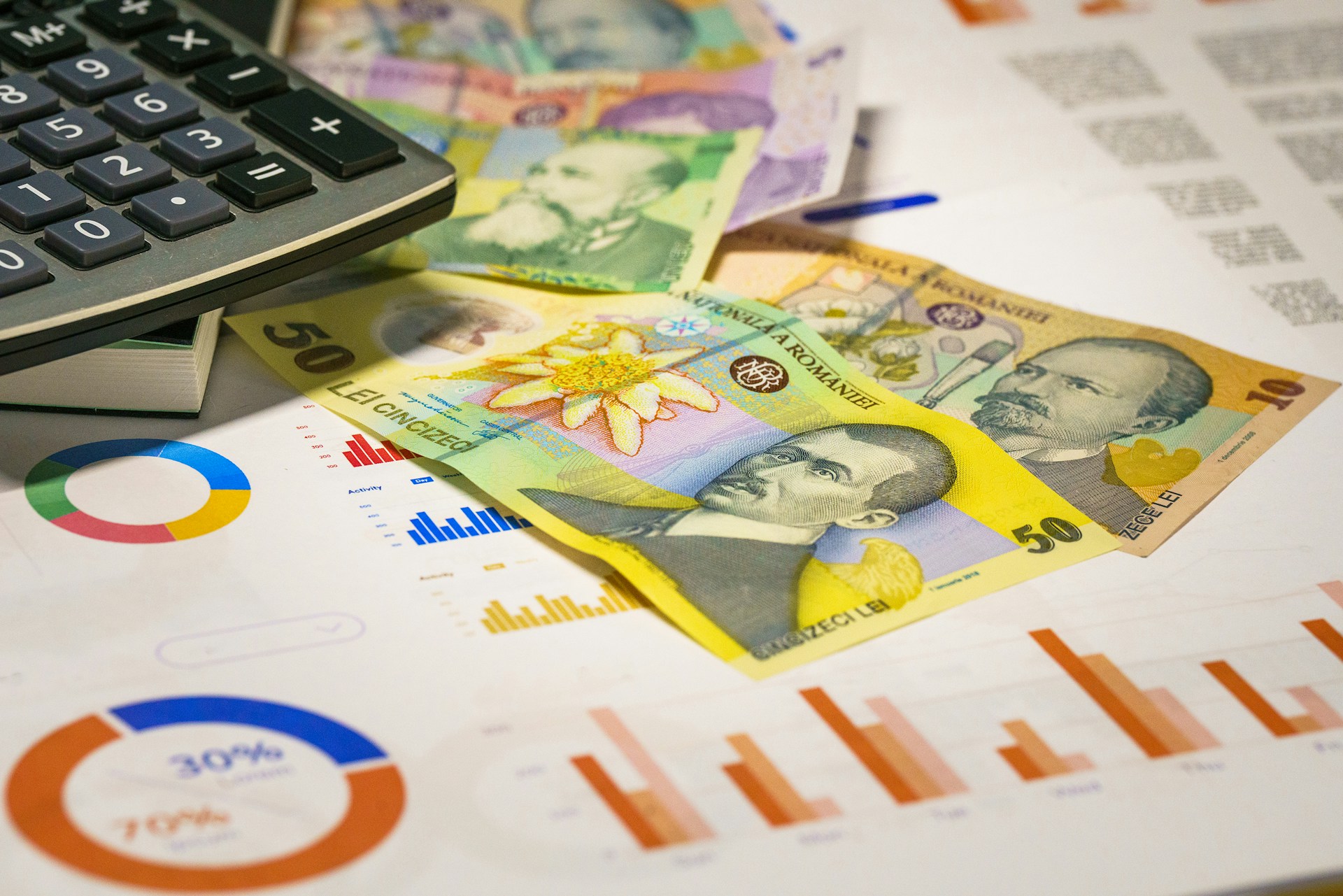6 Things To Do If You Want to Make Better Business Decisions

Decision-making is an inherent part of business. Entrepreneurs have to make several decisions per day depending on the size of the business they run. This can be overwhelming, and also why entrepreneurs (and leaders) try to narrow down the number of decisions they make before fatigue sets in.
To achieve this, they sometimes adopt controversial styles. For Steve Jobs, Mark Zuckerberg, and Obama, having specific sets of clothing helps them to conserve mind power, and redirect it to more important stuff.
[You’ll see I wear only gray or blue suits. I’m trying to pare down decisions.] _Obama
I’ll talk more about this when discussing how to manage decision-making. So what exactly is a bad business decision? And how can you recover from it? Let’s dive in.
What is a bad business decision?
At first, this may seem quite obvious. A bad business decision is easily the one that puts the business at risk of bankruptcy. This could be by damaging the business’s reputation, giving the competitors an unfair advantage, or putting the business into more debt than it can handle. Bad decisions are probably easy to identify and also avoid if you know what to look out for. But there are situations where a good decision can turn bad.
This can be a result of an unexpected market, economic, or political force. It is difficult to predict if a good decision will eventually become bad. Even when you planned for the risk and any surprises, some unknown unknowns could topple your efforts and derail that “best-laid plan”. This means there is a slim chance that making the best business decision could blowback. So every entrepreneur needs to know how to recover from a bad business decision.
Here are some examples of bad business decisions and what it costs the business
The New Coke Fiasco
Coca-Cola once decided to introduce a new Coke in an effort to revive its brand image against the growing threat from Pepsi. 79 days later, the company regretted this decision and reintroduced the old Coke recipe, rebranding it as Coca-Cola Classic, because the customers revolted against the New Coke.
This proves in the heat of the battle to take back its market share, Coca-Cola had neglected to carry out proper market research and they paid for it dearly.
Blockbuster’s deal of a lifetime
Blockbuster was once a household name in the entertainment industry. But one slip up and they are now almost extinct. A certain startup had once approached the then industry giant to propose a partnership. But Blockbuster declined. Back in the day, brick-and-mortar stores were the deal and Blockbuster failed to look ahead.
Had they done so, they may have noticed that times were changing and the internet meant new business opportunities as well as competitions. Well, they learned the lesson many years later after Netflix took over the entertainment industry, and the name Blockbuster quietly faded away.
Nokia
The story of Nokia is one everybody knows by now. The once indisputable king of smartphones failed to innovate, holding onto its technology for far too long while the world had moved on to something better, Android. Their oversight cost the company so much, and although they tried to make a comeback many years later, it was too late.
6 things to do if you want to make better business decisions
Avoid making too many decisions
Research shows that judges are more lenient in the early hours of the day, and just after a break. So a parole hearing held in the morning is likely to yield a favorable outcome than one held later in the day. This research proves that our ability to make decisions is not infinite. It is like a muscle and constantly putting it to use will lead to fatigue.
[The authors of the peer-reviewed paper looked at more than 1,000 rulings made in 2009 by eight judges. They found that the likelihood of a favorable ruling peaked at the beginning of the day, steadily declining over time from a probability of about 65% to nearly zero, before spiking back up to about 65% after a break for a meal or snack.]
The problem with willpower is that once fatigue sets in the risk of making poor decisions increases. To avoid this, entrepreneurs should limit the number of decisions they make by; Limiting the number of unnecessary or unimportant decisions they make, delegating as much as possible, or deferring some decisions to a later time. Any of these three approaches will help you reduce the number of decisions you make and reserve your willpower for important decisions.
Have a process/routine in place
You can avoid making bad decisions If you develop a process, routine, or rules and stick to it. This could be not making decisions when you’re tired or waiting until you have all the facts before making a decision. Having a process or routine will make some decisions automatic and almost instinctive.
You subconsciously know what decision to take without having to think through the entire process. This is a heuristic technique that speeds up your decision-making while cutting down the effort required since your brain creates mental shortcuts to arrive at the best possible decision each time a familiar situation arises.
Proper risk management
Risk management involves identifying and assessing risks in a business decision and coming up with ways to reduce or mitigate the risks. Risk management does not eliminate the possibility of making a bad business decision, but it will help you manage the consequences and make sure it’s within your control. A risk matrix is often used in risk management to measure the impacts of risks associated with various business decisions and can be used in planning countermeasures.
One shortcoming of the risk matrix is that it only works well with known risks or Known Unknowns. These are risks that can be predicted and thus planned for. However, a risk matrix is not suitable for managing Unknown Unknowns. These are risks that can not be predicted and thus difficult to counter. In this situation, all you can do is wait for the risk to unfold and develop countermeasures in real-time.
Think long term
Thinking long-term can help you avoid decisions that may feel good in the short term but that could turn out to be a bad business decision in the long run. Think of it this way, short-term decisions have long-term consequences, and long-term decisions with short short-term consequences. Let’s take Nokia for example.
Imagine the company made the decision to jump on the bandwagon of phone manufacturers who were adopting Android mobile software. This decision could have affected their baseline in the short term as the company would have to shake things up a bit. But it would have turned out to be a very good decision in the long term.
Here’s a quote on long-term thinking by Jeff Bezos;
[If you think about the long term, then you can really make good life decisions that you won’t regret later]
Don’t let your feelings get in the way
It can be difficult to separate emotions from business. After all, we are hardwired to be emotional. So when we are making decisions, it is possible to let emotions get in the way of our thinking. Let’s say you have to lay off some of your employees. This could happen for many reasons, most of which are out of your control.
Now, it will be difficult to lay off people who have been with you for a long time, likely since the start of the business. But if you don’t do that, the business could fail. This is the kind of situation that could make anyone emotional and uncomfortable. But it is also when you need to be most rational and learn to compartmentalize your feelings and emotions.
Keep your feelings out of it and focus on what’s important for the business.
Sleep
Finally, have a good sleep. Our ability to make decisions is directly affected by how much sleep we get. According to a study; sleep deprivation results in a tendency to make repeated mistakes despite repeated poor outcomes. The study identified the relationship between sleep deprivation and cognitive rigidity.
So the more you lose sleep, the more your ability to change your behavior or beliefs in light of new information will diminish. With proper sleep, we are easily able to adapt our decision-making to new information which will help us make better decisions.
So there you have it, avoiding bad business decisions is as easy as knowing what to do. The ideas mentioned in this article are not foolproof, therefore there is no guarantee that they will prevent you from making a bad business decision. However, they will put you in the best position to make as many good decisions as possible and reduce the number of bad ones If you enjoyed this article, you may also like;
Blitzscaling: How to grow your Startup fast
FAQs: 6 Things To Do If You Want to Make Better Business Decisions
Decision fatigue can be avoided by limiting unnecessary choices, delegating tasks to others, and deferring non-urgent decisions. Entrepreneurs like Steve Jobs and Barack Obama reduced decision fatigue by simplifying routine choices, such as wearing the same type of clothing daily. Structuring your day to address critical decisions earlier, when mental energy is highest, can also help.
A decision-making process or routine creates consistency and reduces cognitive strain. For example, establishing rules—such as waiting until all information is available before deciding or not making decisions when tired—ensures that key decisions are made rationally. Over time, this process can become more instinctive, improving efficiency and reducing errors.
Sleep directly affects your brain's cognitive functioning. Studies have shown that sleep deprivation impairs decision-making, leading to repeated poor outcomes and reduced adaptability to new information. Proper rest improves clarity, reduces errors, and enhances your ability to evaluate information critically and adjust decisions as necessary.
Decision fatigue occurs when mental energy is depleted after making too many decisions, resulting in poorer judgment. Entrepreneurs who face numerous daily decisions risk making costly mistakes as fatigue sets in. Mitigating this with practices like task delegation or simplifying routine decisions can improve overall decision quality.
Risk management involves identifying, assessing, and mitigating potential risks associated with a decision. Tools like a risk matrix can evaluate the likelihood and impact of known risks, helping a business develop countermeasures. While it can't anticipate unknown risks, it ensures preparedness for predictable challenges, minimizing negative outcomes.
Long-term thinking helps avoid decisions that provide short-term satisfaction but have negative long-term consequences. For instance, Nokia's failure to adopt Android was a short-term benefit to maintain familiarity but became a long-term failure. Aligning decisions with the company's goals and considering long-term impacts fosters sustainability and growth.
Emotions can cloud judgment, leading to biased or irrational decisions. For example, an entrepreneur may hesitate to take necessary but difficult steps, like layoffs, due to personal attachments. To manage this, compartmentalize emotions and focus on data, logic, and the business's long-term health.
While it's impossible to eliminate all bad decisions due to unforeseen circumstances, following best practices—like risk management, data-driven analysis, and strategic planning—significantly reduces their likelihood. Learning from past mistakes and adapting to changes also helps improve decision-making over time.
Blockbuster's decision to dismiss a partnership proposal from Netflix is a perfect example. By failing to recognize industry changes and the potential of digital streaming, Blockbuster sealed its decline while Netflix flourished. This highlights the importance of adaptability and assessing long-term trends when making decisions.
Successful entrepreneurs blend data-driven insights with intuition to make well-rounded decisions. For instance, data provides analytical support, while intuition, developed through experience, helps navigate high-uncertainty scenarios. Striking this balance ensures decisions are both informed and innovative, particularly in fast-changing markets.

square.jpg)










